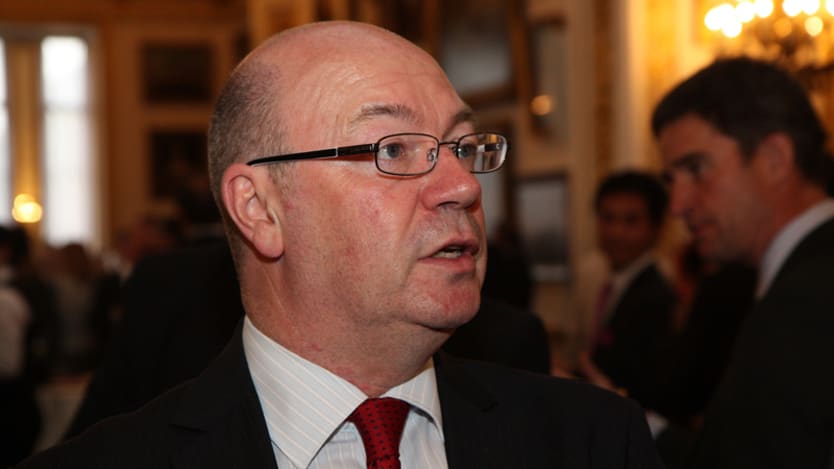DFID and FCO must 'retain separate identities,' says DFID minister

MANCHESTER, United Kingdom — The United Kingdom’s Foreign Secretary Boris Johnson sparked tongue-wagging at the Conservative Party conference on Monday after a provocative interview with The Sun newspaper in which he said the decision to separate the Department for International Development from the Foreign & Commonwealth Office two decades ago was “a colossal mistake.”
However, speaking at the conference in Manchester later in the day, Andrew Mitchell — a fellow Conservative Party politician and former secretary of state for international development — claimed that Johnson had been misquoted and had told him that remerging the departments would be a “catastrophic mistake.”
Speaking to Devex on the sidelines of the conference, Alistair Burt — joint minister for the two departments — confirmed that the British government has no intention of re-combining them.
“It isn’t government policy to merge the departments,” Burt said. “No one has revealed a master plan to me that says this is where we’re going … and there’s been absolutely no consideration of that whatsoever.”
The U.K.’s overseas aid work was originally administered by the Foreign & Commonwealth Office but was broken out into its own department — the Department for International Development — with an independent budget in 1997. In recent years, DFID has been working more closely with the FCO and other government departments as part of the new “cross-government” aid strategy, which will see almost one-third of the U.K.’s aid budget spent by departments other than DFID by 2020. However, it remains independent and is overseen by Secretary of State for International Development Priti Patel.
Conservative politician Burt and his colleague Rory Stewart were both granted dual positions as ministers of state for international development and the foreign office following the U.K.’s snap election earlier this year. Burt described the unique posting as an initiative of Prime Minister Theresa May, in an effort to improve coordination between the two departments.
“It was the prime minister’s idea to merge the posts,” he said, but if the government were to say it was merging the two departments, “immediately the reaction would be that it’s subsuming the Department of International Development; it would be seen to be a takeover by the Foreign Office,” he told Devex.
The public and the Conservative Party at large would likely see a merger as “a retrograde step,” Burt said, adding that while he is “very pleased that we have a couple of joint roles, they’re joint roles as opposed to trying to bring the departments together. I don’t see that as a policy formation.”
If such a merger were taken seriously, Burt told Devex, “all the good we’ve done in recent years to persuade people that development really matters to us would get blown away for no particular good reason.”
While both departments are benefitting from “greater joint working,” he said, “it’s very important that the two retain a separate identity.”
The Sun newspaper reported on Sunday that Johnson had said: “It was a colossal mistake in the 1990s to divide the Department for International Development from the Foreign Office.”
“If we are going to be this great global campaigner for free trade, then we have got to maximise the value of overseas engagements.”
While doubts have been cast over his intended meaning, the idea seems to have found some resonance within the Conservative Party. Responding to a question from Devex during a side event at the party’s annual conference, Crispin Blunt — a Conservative politician and former parliamentary under-secretary in the Ministry of Justice — said that he would like to see the government “doing defense, intelligence services, the foreign office [activities], and development frankly all out of the same budget.”
Such a move would allow the government to “make the most of the interplay between those interests,” he said.
For more U.K. news, views and analysis visit the Future of DFID series page, follow @devex on Twitter and tweet using the hashtag #FutureofDFID.
Search for articles
Most Read
- 1
- 2
- 3
- 4
- 5
